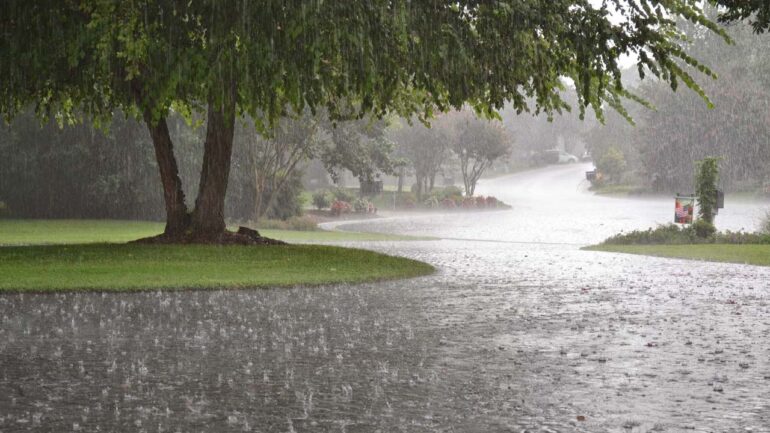The National Disaster Management Authority (NDMA) has cautioned about potential for urban flooding in major cities and landslides in hilly areas of Pakistan as pre-monsoon rains are forecasted to hit the upper and central regions of the country from June 25 to 30.
The NDMA has directed provinces to take necessary measures to ensure public safety during this period.
The Pakistan Meteorological Department had earlier predicted rain and wind-thundershower activity with isolated heavy falls in the upper and central parts of the country due to moist weather conditions. The areas expected to receive rain, with intermittent breaks, include Islamabad, Rawalpindi, Murree, Galliyat, Azad Kashmir, Gilgit-Baltistan, Khyber Pakhtunkhwa (including Chitral, Swat, Mansehra, Abbottabad, and Peshawar), Punjab (including Lahore, Gujranwala, Faisalabad, and Sargodha), and other districts.
Sukkur, Jacobabad, and Larkana are also likely to experience rainfall and wind-thundershowers from June 27 to 28.
The NDMA’s weather advisory states that the prevailing heatwave conditions are expected to subside with the arrival of the new weather system. However, heavy rainfall may lead to urban flooding in low-lying areas of Islamabad, Rawalpindi, Peshawar, Gujranwala, and Lahore from June 26-27. Flash flooding could also occur in the hill torrents of Dera Ghazi Khan, Rajanpur, and adjoining areas of northeastern Balochistan on June 27.
The NDMA has warned about potential damage to loose structures such as electrical poles, solar panels, hoardings, trees, and under-construction buildings due to duststorms, wind-thunderstorms, and heavy falls.
In response to the situation, the NDMA has directed all provincial, Gilgit Baltistan, and State Disaster Management Authorities (PDMAs, GBDMA, and SDMA), as well as other relevant authorities and agencies, to undertake measures as per their respective mandates. They are advised to monitor water levels in rivers, streams, and urban drainage systems continuously and take early response measures if necessary. It is crucial to maintain nullahs and stormwater drains to prevent blockages that could lead to flooding. The general public is advised to seek shelter in safe areas during dust-wind and thunderstorms and to avoid objects that may pose a risk of falling or being struck by lightning.
The NDMA has emphasized the importance of providing guidance and assistance to travelers and visitors in vulnerable locations and advising farmers to take necessary precautions to protect their crops from adverse effects of dust-wind-thunderstorms and hailstorms.



